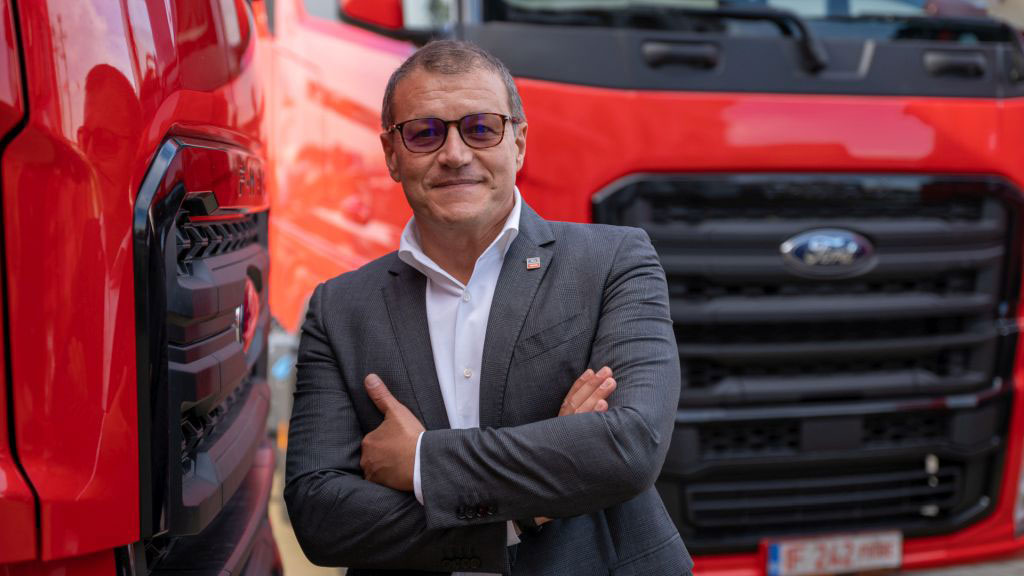Q: The year that is about to end has been a recovery year for most companies, although it is still impacted by the evolution of the COVID-19 pandemic. How do you expect to finish 2021 from a business point-of-view?
Stefano Albarosa: Looking back at 2020, in spite of the adverse context, albeit at a slower rhythm, we have continued to grow. 2021 has been full of challenges mostly connected with production/delivery delays from the factory and an impressive growth in trucks pricing driven by the costs increase in raw material.
We see challenges and change as opportunities to be exploited. By the end of the year we expect our growth to be of almost 30% on both number of trucks sold and turnover thanks to a business model that is agile.
How was 2021 for us? We have maintained the leadership in Construction and Municipal vehicles and substantially increased our market share in Tractor heads. We have expanded both our after sales and used trucks operations with a double digit growth rate. We have delivered Ford Trucks vehicle number 2000 in half the time needed to deliver the first 1000 vehicles and now looking forward to deliver vehicle number 3000 in Q3 2022, by further accelerating our sales.
We are digitalizing all our company process flows to take full advantage of any opportunity of automatizing and making our company transparent so that any information is promptly available to any relevant stakeholder (customers, suppliers, partners and employees).
Our main focus is to add value to our customer. If they win, we win too.
Q: The transport industry is facing a high demand for drivers and at the same time we see challenges in worldwide supply chains. How are these challenges impacting your business?
Stefano Albarosa: The pandemic has severely impacted worldwide supply chains due to the disruption in the level of demand (the stop and go due to lockdown). The entire sector of the automotive industry, practically came to extended production stoppage in 2020 and early 2021.
We see now an accelerated recovery of supplies within the context of a future full of uncertainties driven by commodities, fuel and utilities price increase and an inflation rate that will soon be felt on overall demand level.
Labour market needs to adapt to this fluctuation, and it normally does with some lag time. I see “drivers crisis” every now and than and this will not be different from any other with supply and demand meeting at some stage.
In this context we need to take everyday as it comes as long term planning does not make sense. Our ability to adapt to changing circumstances quickly as well as to add increased value to our customers remain the key to success. More efficiency and more digitalisation will result in an increased speed of our sales cycle and with this a clear competitive edge when compared to our competitors.
Q: The construction material prices increased but also the demand for new construction projects increased. How do you see the market moving forward and how are you planning to approach the evolution of the market?
Stefano Albarosa: Going back to the context that led to this situation, we see that a big reason for which construction materials cost more these days is that several supply chains were disrupted during the pandemic.
Construction market in Romania will greatly depend on the ability of the political class in Romania to be able to take advantage of the immense resources made available by the EU sponsored PNRR.
Political crisis are a blow, especially if they extend for longer period and could result in Romania wasting this incredibly huge opportunity. I sincerely wish this will not be the case and that we will soon have a government able to implement the reforms needed to access the PNRR.
As from how it impacts this our business, we see demand of construction vehicles in 2022 in line with that of 2021 (approximately 25% of total commercial vehicles demand).
Q: Everybody talks these days about digital transformation. What did you do in your company to digitally transform your sales, marketing, and operations business flows?
Stefano Albarosa: We strongly believe in digitalisation as a driver of efficiency and since two years we’ve been implementing a plan to bring all our company processes in digital forms. Our target is to have every relevant information for any stakeholder (customer, supplier, partner or employee) transparent, promptly available and accessible to any other process where it is needed.
We are very determined to do this, even if it is not an easy task.
Q: Sustainability is a “hot” term these days when everybody is talking about reducing pollution and CO2 emissions. How do you think sustainability will impact your business and what tactics are you adopting to address this challenge?
Stefano Albarosa: I consider environmental sustainability the most important global challenge we face today. There is no magic formula here and everyone must take all possible steps to reduce his/hers carbon footprint and any waste output.
Ford Trucks is investing a lot in electric power trains to bring to zero the environmental impact of its trucks and we very much welcome this.
Technology plays a major role in building a more sustainable future, and we are open and keen to implement it within our Company.
Q: What advice do you have for Romanian managers in 2022?
Stefano Albarosa: Remain committed, agile, efficient, and focussed on your targets. In a disruptive environment only the fittest survive and prosper.
Q: How do you expect the Romanian market to evolve in 2022?
Stefano Albarosa: I expect 2022 Romanian market to be similar in volume with 2021 given the shortage of supplies, not the demand. And we can see this as an excellent opportunity to focus on doing better rather than doing more.
You can read the interview also in the document below:


































